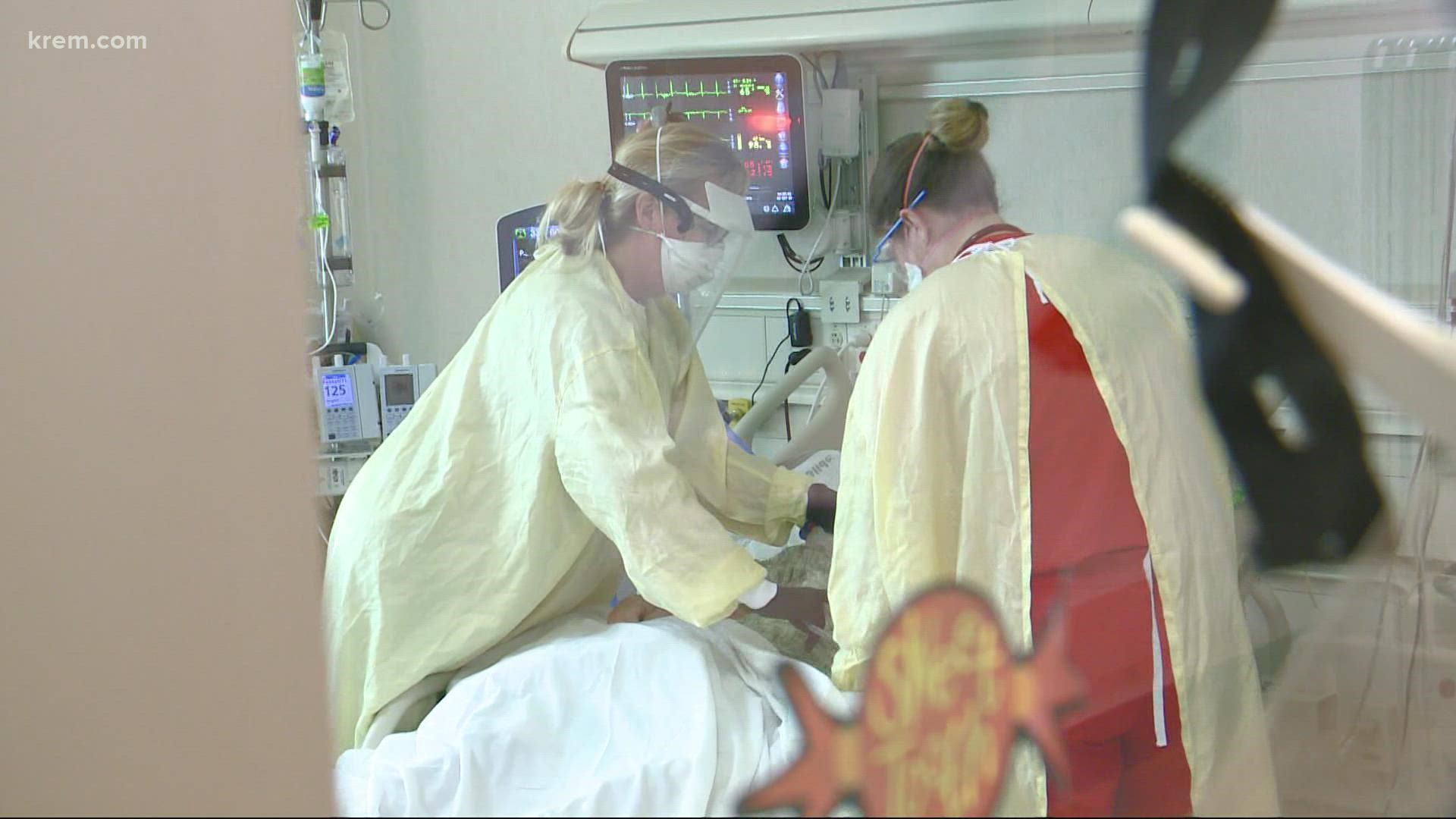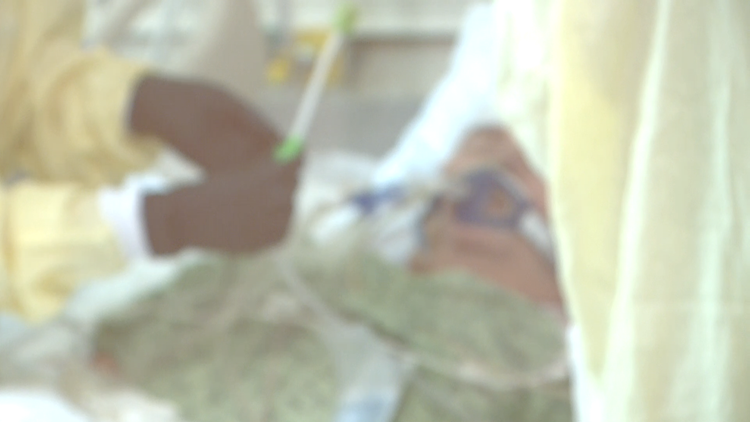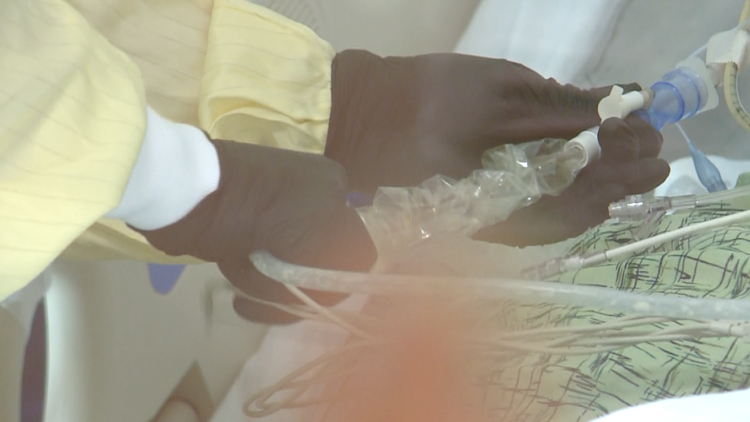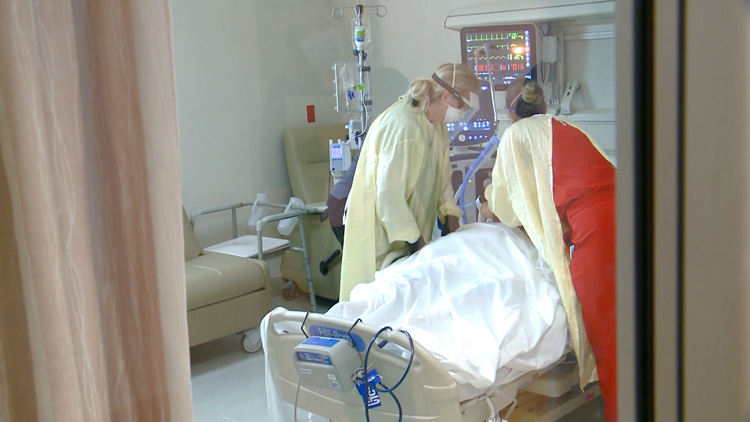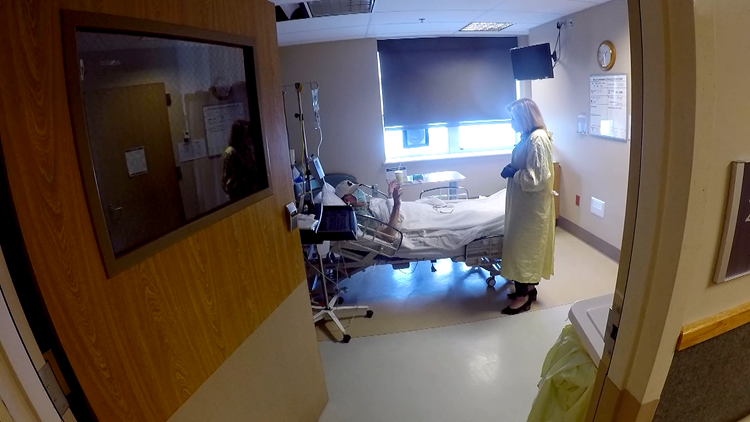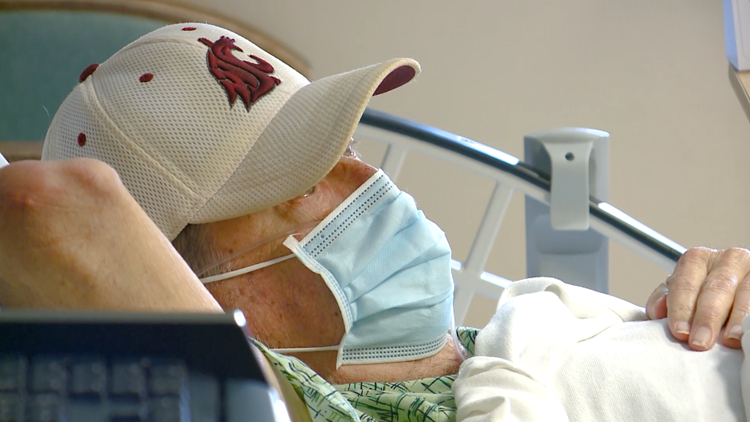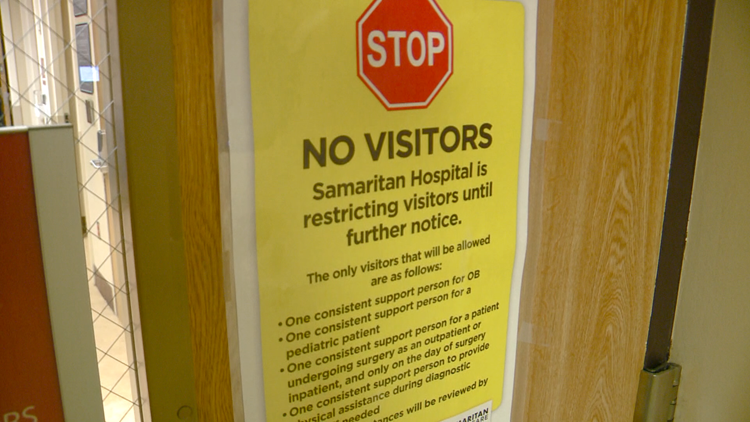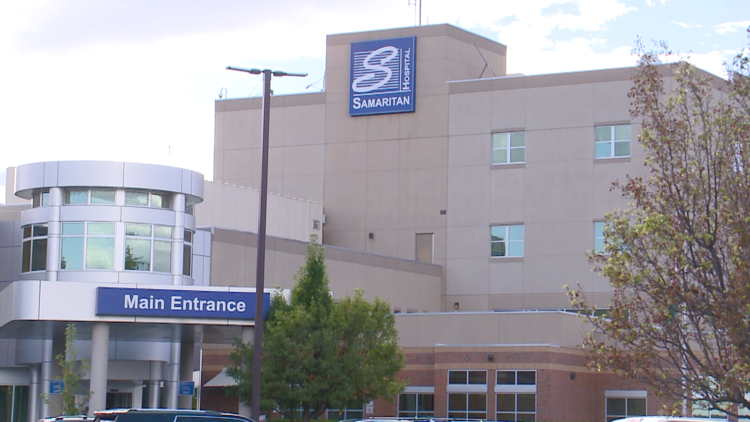MOSES LAKE, Wash. — The intensive care unit (ICU) at Samaritan Hospital in Moses Lake is the only one for nearly 100 miles in any direction. It's currently at capacity, along with the hospital's medical/surgical unit.
One week ago, Samaritan Hospital announced it would postpone all elective surgeries due to the uptick in COVID-19 hospitalizations and sustained staffing strains caused by the surge in cases. Samaritan joins Providence and MultiCare hospitals in Spokane that have made the same decision.
COVID-19 patients have been arriving at Samaritan Hospital for weeks from many of the small, rural communities in the area. KREM 2 got an inside look at the hospital's ICU and spoke exclusively with a coronavirus patient.
Most of the COVID-19 patients in the ICU are sedated and many of them are on ventilators. Some of them will not make it.
Shelley Gay, the ICU/Trauma director at Samaritan Hospital, said the ICU has been at or above capacity almost every single day over the last four months.
"It's hard to understand if you're not living in it. It's like you're falling down a well, and there's no place to grab ahold of. It's just constant chaos," Gay said.
The work inside the ICU is demanding and time-consuming. Doctors and nurses work to roll patients every two hours, getting them off their backsides to help prevent bed sores.
The hospital is facing several major challenges: the inability to transfer patients, sicker people in the hospital and lower vaccination rates in and around Moses Lake.
Less than 45% of the Grant County population is considered fully vaccinated against COVID-19 and many of the surrounding counties are also below the state average. Samaritan is the main hospital for all of Grant County, and the next closest ICUs are either at Confluence Health in Wenatchee or Providence Sacred Heart Medical Center in Spokane. Both of those hospitals are also at capacity.
"Every hospital has been packed and so it's more difficult to transfer patients than it has been in the past. So we are keeping these patients and doing interventions here at Samaritan," Gay said.
Patient credits COVID-19 vaccine for saving his life
Some coronavirus patients, including Jerry Crossler of Ritzville, find themselves in the medical/surgical unit, one floor down from the ICU. Crossler, 81, was diagnosed with COVID-19 two weeks ago.
"I worry about my breathing all the time. And when it's that difficult, you get a little paranoid," Crossler said.
Crossler is one of six COVID-19 patients at Samaritan considered "breakthrough cases," meaning they got sick despite being fully vaccinated. He said he believes the vaccine saved his life and encouraged people to seek out the right sources for information on the vaccine.
"They just got to start reading the right sources," Crossler said about those who do not want to get the vaccine. "They get on social media, and then read the people they want to agree with. They don't read who are the best people to read."
Doctors have told Crossler he may be able to go home soon if his condition continues to improve. These success stories help keep healthcare workers going and fighting through the moments that are difficult.
PHOTOS: Inside look at Samaritan Hospital's ICU in Moses Lake
Staffing shortages complicate COVID-19 fight
Staffing shortages have also hit the hospital hard. Emily Eidson, a nurse educator, has been pulled out of the classroom and back onto the frontlines at Samaritan Hospital as COVID-19 cases have spiked.
"When you're at work you kind of have to be on your game. People's lives are on the line. …I think that that's just mentally exhausting," Eidson said.
Nurses and nursing assistants have recently resigned from Samaritan Hospital and the facility could lose more as Washington Governor Jay Inslee's vaccine mandate for healthcare workers takes effect on Oct. 18. Workers will have to be fully vaccinated by Oct. 18, meaning they need to get their final dose by Oct. 4.
That frustration likely stems from the fact that every day as just as demanding for healthcare workers as the one before. But it's not just the hard work and long hours that are taking a toll.
"We have people in our community...doubting our abilities, our word, and that we are somehow deceiving them about what's really happening inside these walls," said Dr. Andrea Carter, who has served as Samaritan's Chief Medical Officer for the last six years.
Carter said it's difficult to see the profession become so political and she struggles with the distrust of us healthcare professionals.
"It's not hard to come to work. The people I work with are wonderful. They're amazing," she said. "They give everything they got sometimes to their own detriment and their own health, and it's not hard to come to work with people like that."
But she recognizes the lasting impact COVID-19 is having on the entire system. At least a portion of the hospital's high census right now is people that have delayed care during the pandemic.
Still, the healthcare workers keep showing up despite the hardship and unknowns.
"Patients feeling like, 'Am I gonna die?' We get that question a lot," Carter said.
When KREM's Whitney Ward asked what Carter tells them in response, she replies with, "Not if we can help it."

